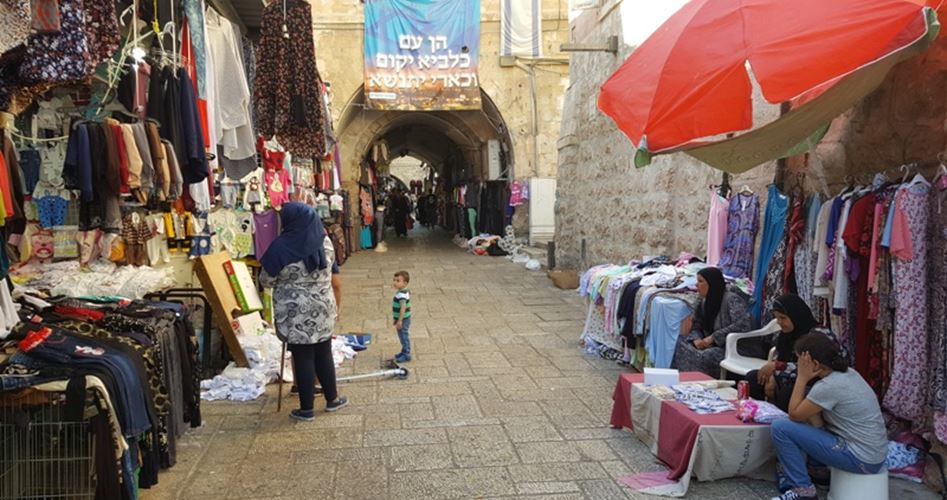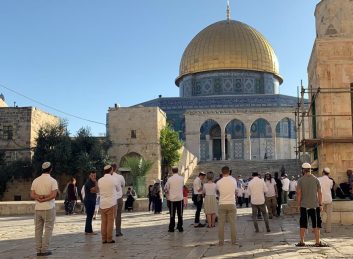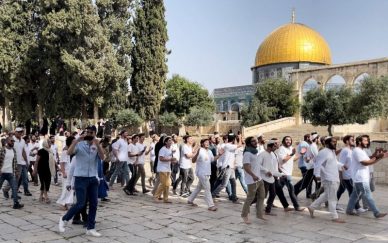The merchants of Al-Khawajat market in the Old City of Occupied Jerusalem suffer from high taxes imposed on them by the Israeli occupation municipality resulting in the closure of some shops; thus increasing the suffering of merchants.
At the same time settler groups are trying to take over some shops to use them as an entrance to a Jewish synagogue located behind the market. The settlers use the rooftops of the market shops as a pathway to get in and out of the synagogue.
Closure of shops
Al-Khawajat market includes 75 shops all of which were shut down except for six shops which sell clothes dishdashas and copper in addition to a restaurant and a shop that designs shoes for elderly people. The number of shops operating at the market was eight a week ago but two merchants shut down their shops after they declared their bankruptcy.
The elderly Palestinian Izziddeen Abdulaziz Eida 82 one of the merchants in the market says: “Despite the low turnout at my small shop with an average of two to three customers per week I am still determined to continue working there not because of money but because of a greater goal that only those who belong to the walls of Jerusalem and the markets of the Old City know.”
Izziddeen sells old traditional Palestinian dresses with only old men are still interested in such as dishdashas scarfs and embroidery in order to preserve Palestinian heritage and identity as well as the location.
He asserted that he is committed to selling these clothes because it represents the Palestinian heritage and he sells embroidery because he mastered this handicraft.
He pointed out that it has been two days since he received a customer and that he is no longer able to provide his basic life needs thus he can’t pay the Arnona (property tax).
He affirmed that he will continue his steadfastness in his shop despite the bad living conditions in order to continue running the shop and to maintain the market and keep it alive as this shop is a trust that he will pay his soul for.
Arnona
For his part the merchant Imad Barakat said that he is obliged to be steadfast in the market because he finds there the “smell of his father and grandfather” as this shop was inherited and given to him as a trust.
Barakat asserted that merchants who were forced to leave the market had huge amounts of money imposed on them in the form of accumulated Arnona amounting between 250000 to 1000000 NIS asserting that this is the only reason why some merchants closed down their shops.
Al-Khawajat market is 800 years old and it was named in the past with different names including the old jewelry market where merchants sold gold and silver until 1920.
When Aldabagha market was built near the Church of the Holy Sepulcher the merchants of the Al-Khawajat market were asked to move there and they did. The Aldabagha market was then named the modern goldsmith market.
In the 1950s other merchants came to the market and turned it into a market selling clothes naming it Al-Khawajat market and after 1967 some merchants turned their businesses into selling souvenirs for tourists.













